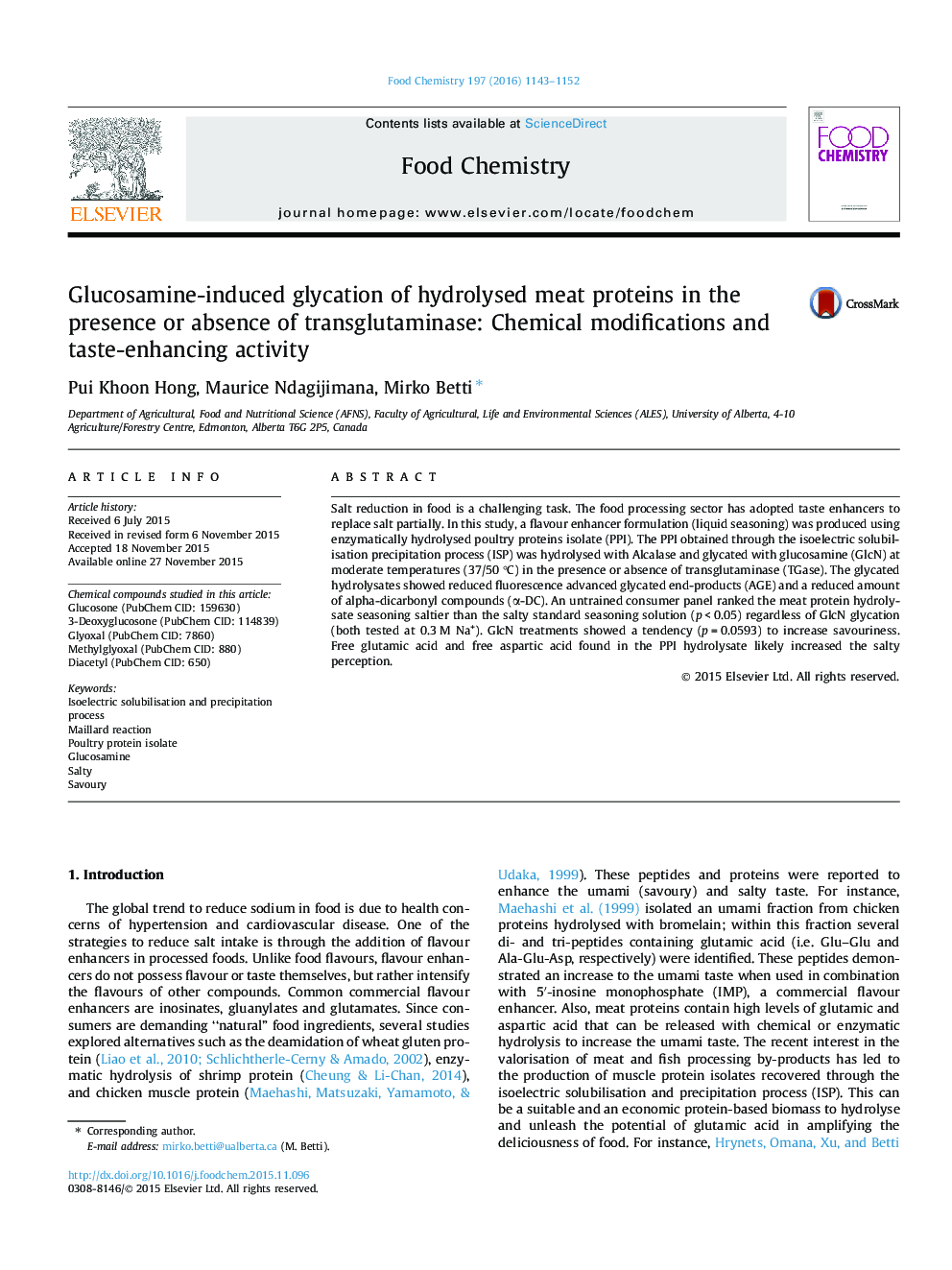| Article ID | Journal | Published Year | Pages | File Type |
|---|---|---|---|---|
| 1183347 | Food Chemistry | 2016 | 10 Pages |
•Poultry protein isolated from mechanically deboned meat was hydrolysed with Alcalase.•Hydrolysate was glycated with glucosamine with and without TGase at 37 and 50 °C.•The hydrolysate was chemically modified by glycation.•The native hydrolysate enhanced the perceived saltiness intensity.•Glycation showed a statistical tendency to enhance the perceived savouriness.
Salt reduction in food is a challenging task. The food processing sector has adopted taste enhancers to replace salt partially. In this study, a flavour enhancer formulation (liquid seasoning) was produced using enzymatically hydrolysed poultry proteins isolate (PPI). The PPI obtained through the isoelectric solubilisation precipitation process (ISP) was hydrolysed with Alcalase and glycated with glucosamine (GlcN) at moderate temperatures (37/50 °C) in the presence or absence of transglutaminase (TGase). The glycated hydrolysates showed reduced fluorescence advanced glycated end-products (AGE) and a reduced amount of alpha-dicarbonyl compounds (α-DC). An untrained consumer panel ranked the meat protein hydrolysate seasoning saltier than the salty standard seasoning solution (p < 0.05) regardless of GlcN glycation (both tested at 0.3 M Na+). GlcN treatments showed a tendency (p = 0.0593) to increase savouriness. Free glutamic acid and free aspartic acid found in the PPI hydrolysate likely increased the salty perception.
